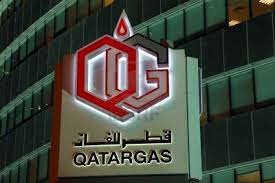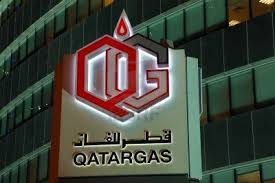
The long past of the dispute between Saudi Arabia and Qatar are best explained by natural gas and the latter’s excommunication of the former has been brewing since 1995.
That was the year when the tiny desert peninsula was about to make its first shipment of liquid natural gas from the world’s largest reservoir and it was also the year when the father of the current emir, Sheikh Tamim bin Hamad Al Thani, toppled his own pro-Saudi father. Shared with Iran, Saudi Arabia’s hated rival, is the offshore North Field, which provides virtually all of Qatar’s gas.
With an annual per-capita income of $130,000, and also the world’s largest LNG exporter, tBottom of Form
he wealth that flowed form the gas turned Qatar into the world’s richest nation. While on Monday, Saudi Arabia described Qatar as an “extension of their brethren in the Kingdom” as it cut off diplomatic relations and closed the border, the focus on gas allowed Qatar to break from domination by Saudi Arabia and set it apart from its oil producing neighbors in the Gulf Cooperation Council.
Qatar’s sovereign wealth fund agreed last year to invest $2.7 billion in Russia’s state-run Rosneft Oil Co. PJSC and thereby built its own ties with the couotry, Qatar also has close ties with other powers including Iran and the U.S. as it hosts U.S. Central Command.
“Qatar used to be a kind of Saudi vassal state, but it used the autonomy that its gas wealth created to carve out an independent role for itself,” said Jim Krane, energy research fellow at Rice University’s Baker Institute, in Houston, Texas. “The rest of the region has been looking for an opportunity to clip Qatar’s wings.”
A call on “all nations of conscience” to isolate Iran was given by U.S. President Donald Trump during his recent visit to Saudi Arabia and it provided an opportunity to Saudi Arabia. The Saudi-led retribution followed after Qatar disagreed publicly, in a statement the government later said was a product of hacking.
Free from entanglement in the Organization of Petroleum Exporting Countries, the oil cartel that Saudi Arabia dominates, has been Qatar’s natural gas output.
Pipelines that would have integrated Qatar into the markets of its Gulf neighbors were not built by the new emir, having survived a counter-coup attempt in 1996. According to a report by the BBC, Bahrain helped to organize the attempt with Saudi Arabia’s consent, alleged two senior Qatari government officials during the trial of the coup plotters in 2000.
Natural gas was seen as virtually worthless, useful mainly for injecting back into oil wells to improve extraction rates, by those much richer oil states at the time. According to a paper Krane co-authored with Qatar University’s Steven Wright, they were willing to pay only a fraction of the world market price for LNG.
And therefore, operating at just at its half capacity is the sole pipeline built, the Dolphin project connecting Qatar’s North Field to the United Arab Emirates and Oman. Even as the vast majority of Qatar’s exports will continue to go to markets in Asia and Europe, the contracts signed last year should fill the rest.
Qatar’s neighbors were irritated by its foreign policy that were developed due to the gas wealth of Qatar. It armed factions opposed by the UAE or Saudi Arabia in Libya and Syria, backed Hamas in the Gaza Strip and the Muslim Brotherhood in Egypt. Al Jazeera, which at various times has embarrassed or angered most Middle Eastern governments, is a global television network and which was paid for by gas.
Most of all, in order to secure the source of its wealth, gas prompted Qatar to promote a regional policy of engagement with Shiite Iran.
Wright, the academic, said that gas isn’t the immediate cause of the current showdown, but “you can question why Qatar has been unwilling to supply its neighboring countries, making them gas poor.” “There probably was an expectation that Qatar would sell gas to them at a discount price.”
(Source:www.bloomberg.com)
That was the year when the tiny desert peninsula was about to make its first shipment of liquid natural gas from the world’s largest reservoir and it was also the year when the father of the current emir, Sheikh Tamim bin Hamad Al Thani, toppled his own pro-Saudi father. Shared with Iran, Saudi Arabia’s hated rival, is the offshore North Field, which provides virtually all of Qatar’s gas.
With an annual per-capita income of $130,000, and also the world’s largest LNG exporter, tBottom of Form
he wealth that flowed form the gas turned Qatar into the world’s richest nation. While on Monday, Saudi Arabia described Qatar as an “extension of their brethren in the Kingdom” as it cut off diplomatic relations and closed the border, the focus on gas allowed Qatar to break from domination by Saudi Arabia and set it apart from its oil producing neighbors in the Gulf Cooperation Council.
Qatar’s sovereign wealth fund agreed last year to invest $2.7 billion in Russia’s state-run Rosneft Oil Co. PJSC and thereby built its own ties with the couotry, Qatar also has close ties with other powers including Iran and the U.S. as it hosts U.S. Central Command.
“Qatar used to be a kind of Saudi vassal state, but it used the autonomy that its gas wealth created to carve out an independent role for itself,” said Jim Krane, energy research fellow at Rice University’s Baker Institute, in Houston, Texas. “The rest of the region has been looking for an opportunity to clip Qatar’s wings.”
A call on “all nations of conscience” to isolate Iran was given by U.S. President Donald Trump during his recent visit to Saudi Arabia and it provided an opportunity to Saudi Arabia. The Saudi-led retribution followed after Qatar disagreed publicly, in a statement the government later said was a product of hacking.
Free from entanglement in the Organization of Petroleum Exporting Countries, the oil cartel that Saudi Arabia dominates, has been Qatar’s natural gas output.
Pipelines that would have integrated Qatar into the markets of its Gulf neighbors were not built by the new emir, having survived a counter-coup attempt in 1996. According to a report by the BBC, Bahrain helped to organize the attempt with Saudi Arabia’s consent, alleged two senior Qatari government officials during the trial of the coup plotters in 2000.
Natural gas was seen as virtually worthless, useful mainly for injecting back into oil wells to improve extraction rates, by those much richer oil states at the time. According to a paper Krane co-authored with Qatar University’s Steven Wright, they were willing to pay only a fraction of the world market price for LNG.
And therefore, operating at just at its half capacity is the sole pipeline built, the Dolphin project connecting Qatar’s North Field to the United Arab Emirates and Oman. Even as the vast majority of Qatar’s exports will continue to go to markets in Asia and Europe, the contracts signed last year should fill the rest.
Qatar’s neighbors were irritated by its foreign policy that were developed due to the gas wealth of Qatar. It armed factions opposed by the UAE or Saudi Arabia in Libya and Syria, backed Hamas in the Gaza Strip and the Muslim Brotherhood in Egypt. Al Jazeera, which at various times has embarrassed or angered most Middle Eastern governments, is a global television network and which was paid for by gas.
Most of all, in order to secure the source of its wealth, gas prompted Qatar to promote a regional policy of engagement with Shiite Iran.
Wright, the academic, said that gas isn’t the immediate cause of the current showdown, but “you can question why Qatar has been unwilling to supply its neighboring countries, making them gas poor.” “There probably was an expectation that Qatar would sell gas to them at a discount price.”
(Source:www.bloomberg.com)





